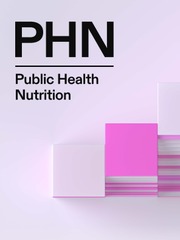-
- You have access: full
- Open access
Trust in the credibility of published articles depends largely on transparency during the peer review process. Transparency in turn depends on full disclosure of any potential conflicts of interest.
Definition and Scope
A conflict of interest exists when an author has secondary interests, whether financial or non-financial, that might inappropriately influence his or her judgment, even if that judgment is not influenced. Having a conflict of interest is not in itself wrong, and not all relationships may lead to an actual conflict of interest. However, PHN requires full disclosure about any relevant relationships, even if the author or reviewer does not believe it affects their judgment. These disclosures can then be used as a basis for editorial decisions.
Types of Conflicts of Interest
Financial relationships such as research support, employment, consultancies, or honoraria, are the most easily identifiable conflicts of interest. However, non-financial conflicts can also exist as a result of personal relationships, academic competition, political, ideological, religious, or scientific preconceptions, and organizational or institutional affiliations.
Declaring Conflicts of Interest
One question that provides some guidance in deciding which relationships merit declaration as potential conflicts of interest is this: if a relationship is not disclosed, would a reasonable reader feel misled? When in doubt, full transparency is the best course of action. Perceived conflicts of interest are as important as actual conflicts of interest, and undeclared conflicts (perceived as well as actual) can undermine the credibility of both the journal and the authors.
Managing Conflicts of Interest
Authors. All potential conflicts of interests must be declared upon submission of the manuscript, to be published with the article. To address possible financial conflicts, the role of the funding organization or sponsor in the design and conduct of the study, in the collection, analysis, and interpretation of the data, and in the preparation, review, or approval of the manuscript should be specified. This information is used by the Editorial Board and peer reviewers in their assessment of the manuscript.
Peer reviewers. Peer reviewers are required to declare any conflicts of interest, financial or non-financial, upon invitation to review a manuscript. Examples of relevant, non-financial competing interests include: having a similar research project near completion; having a similar manuscript under review in the same or another journal; or close collaboration (or competition) with one of the authors of the manuscript. This information can be used to determine if seeking another peer reviewer for a given manuscript is warranted.
Editorial Board. Members of the Editorial Board are required to declare any conflicts of interest upon being assigned a manuscript. This information is used to determine whether to replace an editor who may have competing interests with an editor with no such conflicts. Manuscripts submitted by members of the Editorial Board will be supervised by the Editor-in-Chief or a Deputy Editor, who will review the decision of the assigned Editor for objectivity before issuing a final decision.
Please find the PHN Editor-in-Chief and Deputy Editor Conflict of Interest Statements here.
Sources
Committee on Publication Ethics (COPE). Principles of Transparency and Best Practice in Scholarly Publishing. 2014. Available at: http://publicationethics.org/files/Principles_of_Transparency_and_Best_Practice_in_Scholarly_Publishing.pdf. Accessed January 26, 2015.
World Asociation of Medical Editors. Conflict of Interest in Peer-Reviewed Medical Journals. 2009. Available at: http://www.wame.org/about/conflict-of-interest-in-peer-reviewed-medical. Accessed April 15, 2015.
- ISSN: 1368-9800 (Print), 1475-2727 (Online)
- Frequency: 1 volume per year

